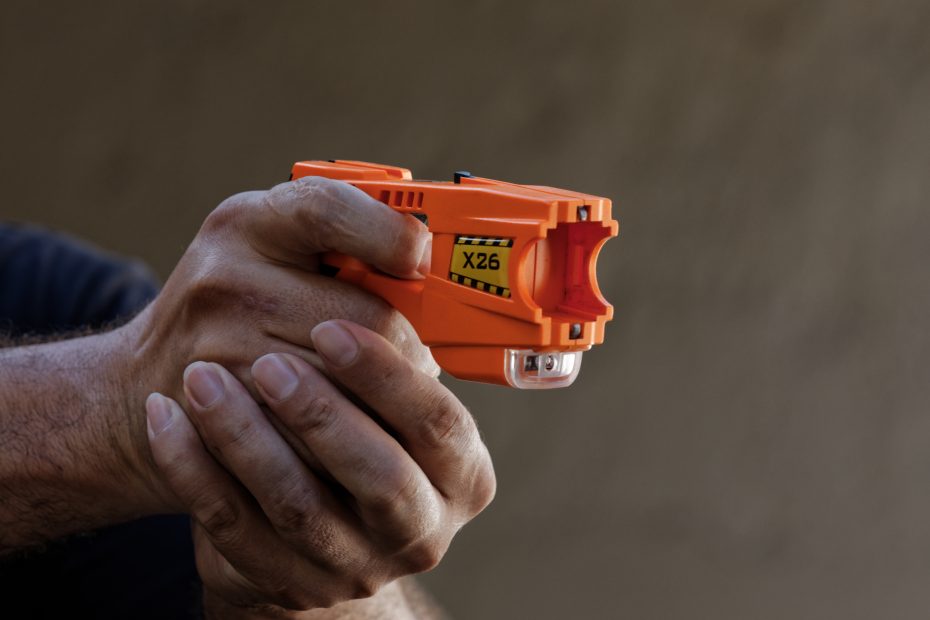Understanding tasers
Tasers, also known as Conducted Electrical Weapons (CEWs), are electroshock devices designed to incapacitate targets by delivering a high-voltage, low-current electrical charge. They typically work by firing two dart-like electrodes attached to thin wires, penetrating the target’s clothing and delivering the electric shock, causing temporary neuromuscular incapacitation.
What are the effects of being tasered?
When an individual is tasered, they experience a sudden and intense muscle contraction, leading to temporary immobilisation. The electric shock disrupts the body’s normal electrical signals, resulting in involuntary muscle spasms, loss of coordination, and incapacitation. While the effects are generally short-lived, they can be distressing and may lead to injuries if the individual falls or experiences secondary impacts.
Beyond the immediate physical effects, being tasered can also induce psychological distress, fear, and anxiety in the individual, especially if they perceive the use of force as excessive or unjustified.
First Aid for tasered individiuals
Providing prompt and appropriate first aid is crucial for ensuring the well-being of individuals who have been tasered. Here are some important considerations:
1. Assess the situations: Ensure that the scene is safe for both the individual and first aid responders before approaching.
2. Check for injuries: Assess the individual for any injuries sustained during the taser deployment, including wounds from the electrodes or secondary injuries from falls.
3. Monitor vital signs: Check the individual’s breathing, pulse, and level of consciousness. If they are unresponsive or having trouble breathing, seek medical assistance immediately.
4. Comfort and reassurance: Offer reassurance and support to the individual, acknowledging their distress and providing comfort as needed.
5. Positioning: If the individual is conscious and able to move, help them assume a comfortable position to alleviate discomfort and minimise the risk of further injury.
6. Seek medical attention: Even if the individual appears to be stable, it’s essential to seek medical evaluation following a taser deployment to rule out any underlying medical issues or complications.
Protocols for taser use in Australia
In Australia, the use of Tasers by law enforcement agencies is governed by strict guidelines and protocols to ensure their safe and responsible deployment. These protocols do not include tasering 95-year-old women on Zimmerman frames in nursing homes. These protocols typically include:
1. Training and accreditation: Law enforcement officers undergo comprehensive training in the use of Tasers, including instruction on proper deployment techniques, risk assessment, and de-escalation strategies.
2. Use of force continuum: Tasers are regarded as intermediate force options within a broader continuum of force, to be employed when other methods of control or de-escalation have been exhausted or deemed ineffective.
3. Risk assessment: Officers are required to conduct a thorough risk assessment before deploying a taser, taking into account factors such as the individual’s behaviour, level of resistance, and potential for harm to themselves or others.
4. Accountability and reporting: Any use of Tasers must be documented and reported following departmental protocols, including detailed records of the circumstances surrounding the deployment and the outcomes observed.
5. Ongoing review and evaluation: Law enforcement agencies regularly review their taser policies and practices to ensure compliance with legal standards, ethical considerations, and community expectations.
In conclusion, tasers represent a complex tool with significant implications for both individuals and law enforcement agencies. By understanding their effects, implementing appropriate first-aid measures, and adhering to stringent protocols, we can strive to mitigate risks and promote the safe and responsible use of Tasers in Australia.
Don’t forget to visit our Blog page for more articles on other interesting topics.
If you want to stay informed on tasers and related subjects, take a look at our courses available here and if you’re looking for safety equipment for your business or home, we have a great range you can shop online here.
